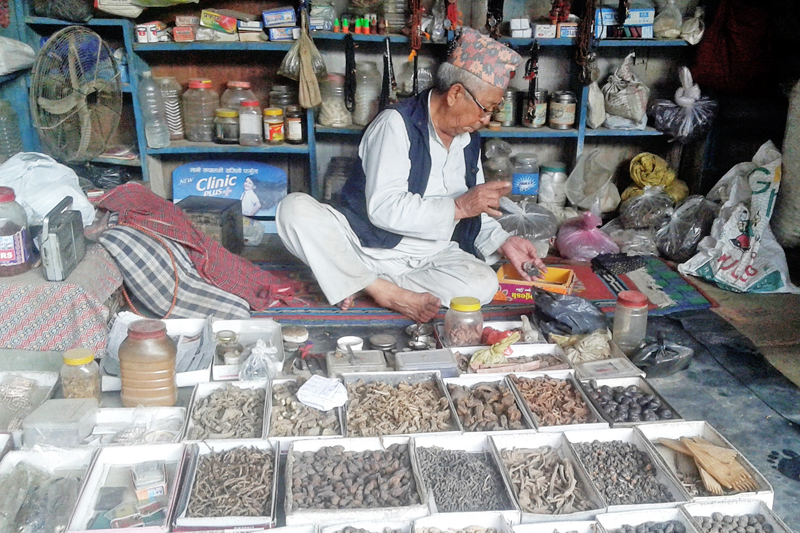Herbal production
Nepal abounds in various kinds of herbs. Usually, the herbs found at an altitude of 3,000 metres are considered as natural chemicals, which are easily available here. Turmeric, pepper, asparagus, spikenard, among others, are the country’s main exportable herbs; most of them are exported to India and resold in other countries.
These herbs can also secure a good market in Europe if proper attention is given to their packaging and marketing.
However, the country is losing a huge amount of potential revenue every year in absence of a mechanism for labeling and providing specifications. Despite this, the concerned authorities have not paid heed to this fact still now.
In recent years, the country exports herbal products worth one billion rupees on average.
There is also a growing trend of exporting herbs to third countries.
But due to technical and financial problems the export of such products has not increased as expected.
In accordance with a study report by GTZ, a German development organisation, a few years ago the market for natural and organic personal care and cosmetic products in Europe is estimated to cross 2 billion euros.
Moreover, Nepal trade integration strategy 2016 has recognised medicinal herbs as an important product having huge export potential. But the lack of research, absence of proper processing and failure to label appropriate specifications have been hampering its business prospects.
Although the concept of community forests has come up with a good impression in preserving plant diversity, most of them are limited to just producing timber and animal fodder.
Though there is a need of utilising such forests for herbal products, no substantial work has been done in this regard yet.
Nowadays, the number of pharmaceutical companies is increasing in Nepal. Therefore, it is necessary to pay attention to developing molecules from locally available plants rather than importing chemicals. If we can do so, the production of herbs will increase and will also have a positive impact on the Nepali economy.
Despite the growing scope of biomedicine in the international market, it is essential to invite indigenous experts in the domestic network to carry out research in the herbal sector.
Since more people in developed countries are attracted to herbal medicines and cosmetics extracted from naturally found chemical composition, the Nepal government should lay stress on exporting such processed herbal products.






